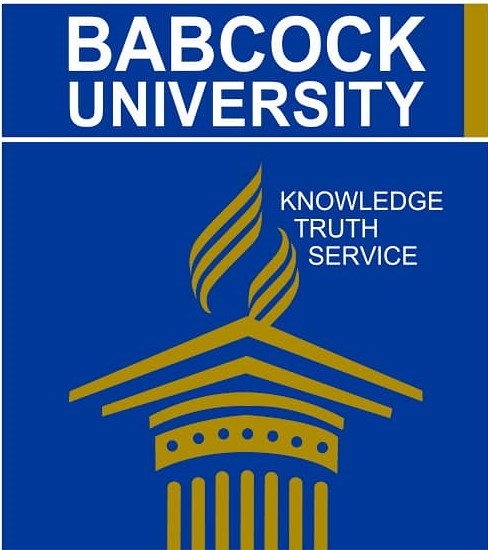CALL FOR PAPERS - Up Coming - Publication Date: 31-03-2026
Journal of Education, Communication, and Digital Humanities is a distinguished, peer-reviewed academic journal published by the Department of Education, School of Education and Humanities, Babcock University, Ilishan-Remo, Ogun State, Nigeria. The journal is issued quarterly, and is committed to the dissemination of high-quality, interdisciplinary scholarship that addresses contemporary issues in Education, Communication, Language, Literature, Religion, History, Artificial Intelligence, Technology, Copyright Practices in AI, Private Law in AI, Philosophy, Digital Humanities, and Humanistic Studies.
We invite scholars, researchers, and practitioners to submit original, high-quality manuscripts that reflect rigorous scholarship, fresh perspectives, and relevance to current global or local realities for its March’s edition Volume 4, March, 2026.
Submissions are welcome in (but not limited to) the following disciplines:
- Education: Educational technology, pedagogy, curriculum design, policy, teacher development, and digital education.
- Communication: Digital communication, intercultural communication, journalism, public relations, media literacy, and emerging media practices.
- Digital Humanities: Computational approaches to humanities, digital archives, textual analysis, and the intersection of AI with humanistic inquiry.
- Language and Literature: Language acquisition and technology, comparative literature, literary theory, translation studies, cultural narratives, and discourse analysis.
- History, Philosophy, and Religion: Interdisciplinary studies in philosophy, culture, history, and religious studies, particularly where they intersect with digital scholarship.
- Artificial Intelligence, Law, and Computing: AI in education, ethical and legal implications of AI, copyright and intellectual property rights, human-computer interaction, and digital rights.
Submission Guidelines
- Cover Page should include:
- Title of the article
- Author(s)’ full name(s) underline your Surname
- Institutional affiliation(s)
- Email address(es) and phone number(s)
- Abstract: Maximum of 250 words
- Keywords: 4-5 keywords listed after the abstract
- Language: English or French
Formatting:
- Font: Times New Roman, 12 pt
- Line Spacing: 1.5 throughout; single spacing for abstract and block quotations
- Length: Maximum of 18 pages
- Referencing Style:
- APA 7th edition
- MLA 9th edition
- Plagiarism: Must not exceed 20% (checked with Turnitin)
- File Format: Microsoft Word (.doc/.docx)
Submission email: journal.edu.com.dig.humanities@gmail.com
Authors are advised to cite indigenous authors as much as possible and a minimum of 70% of the total references should not be more than 10 years old except in exceptional cases
Each published article is assigned a unique Digital Object Identifier (DOI) and made available in both print and Open Access formats, ensuring worldwide accessibility and visibility.
Click on this link https://oa.unij.co.uk/index.php/journaleducomdighumanities/issue/archive to view the previous editions published with Digital Object Identifier (DOI) in Open Access format.
Important Dates
- Current Edition: Volume 4, March, 2026
- Submission Deadline: 25 February, 2026
- Publication Date: 31-03-2026
Publication Fees
- Review Fee: ₦5,000 (due upon submission)
- Publication Fee: ₦25,000
Authors are kindly requested to make their APC payment via the following link: https://oa.unij.co.uk/index.php/journaleducomdighumanities/makepayment
Editorial Board
Editor-in-Chief
- Dr. Adeoye O. Ayodele – Department of Education, Babcock University, Ilishan-Remo, Ogun State
Editors
- Dr. Kolawole Ayodele – Department of Education, Babcock University, Ilishan-Remo, Ogun State
- Dr. Jegede Francis Olabisi – Department of English Education, Lagos State University of Education, Lagos State
- Dr. Sikiru Adeyemi Ogundokun – Department of Foreign Language Studies, Osun State University, Osun State
- Dr. Ngozi Uwannah – Department of Education, Babcock University, Ilishan-Remo, Ogun State
- Ajewole Fola, Department of English, Adeyemi Federal University of Education, Ondo State
- Dr. Chibuzor Franklin Akpati – Department of Languages, Glorious Vision University, Ogwa, Edo State
- Dr. Gabriel Adeyinka Okunade – Department of English & Literary Studies, Federal University Oye-Ekiti, Ekiti State
Online and Production Editors
- Adebayo Akinsanya Atchrimi – Department of Languages (French Unit), Elizade University, Ilara-Mokin, Ondo State
- Oluseyi Akintunde – Department of Education, Babcock University, Ilishan-Remo, Ogun State
For any inquiry related to submissions, editorial processes, or general information about the Journal, please click on Contact Us to make your inquiry.
We appreciate your valuable contribution to scholarship and look forward to your continued engagement with the Journal.
Sincerely,
Adebayo Akinsanya Atchrimi
Managing Editor, Journal of Education, Communication, and Digital Humanities
A Publication of the Department of Education, School of Education and Humanities, Babcock University
WhatsApp: +234 811 406 8601
Journal’s website: https://oa.unij.co.uk/index.php/journaleducomdighumanities/index
Read more about CALL FOR PAPERS - Up Coming - Publication Date: 31-03-2026













 =======================================================================================================================================
=======================================================================================================================================